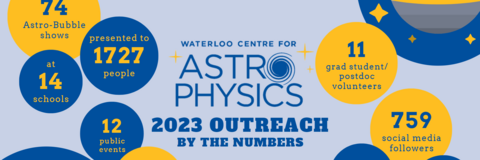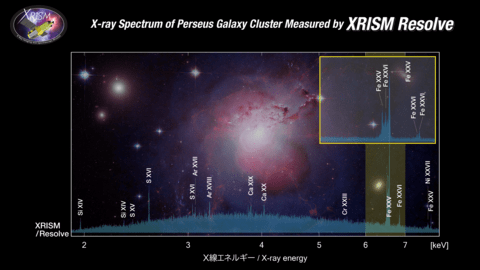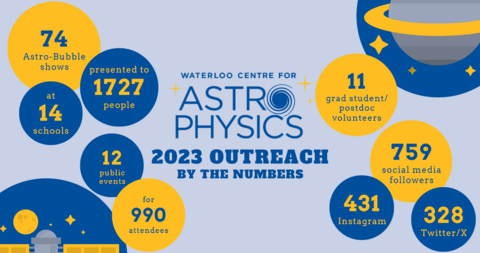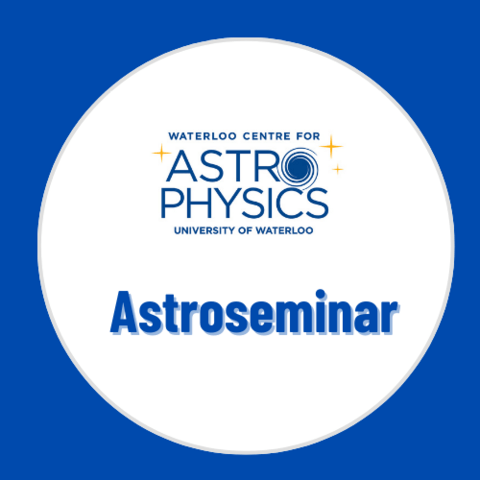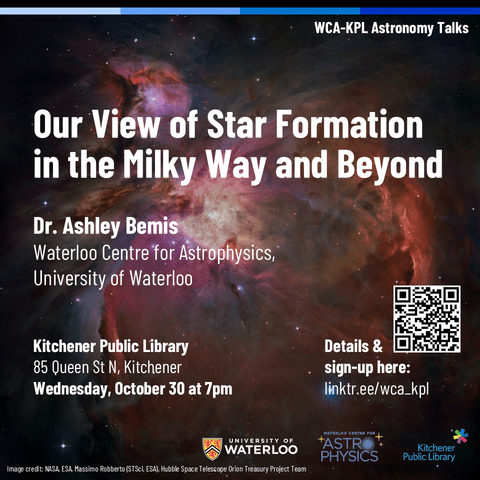...where the Universe is our laboratory.
The Waterloo Centre for Astrophysics (WCA) looks to the cosmos to solve the greatest mysteries of the universe. Here, world-class researchers and students come together in an atmosphere of curiosity, creativity and collaboration; exploring our cosmic origin to truly understand the physical processes at work in the Universe. From black holes to cosmology, we aim to understand what lies beyond the Earth. The possibilities for new discovery are limitless.
News
Will Percival new co-spokesperson for DESI
WCA Director, Will Percival, has been elected as co-spokesperson for the Dark Energy Spectroscopic Instrument (DESI). He took up the two-year term, along with co-spokesperson, Alexie Leauthaud (University of California Santa Cruz) at the beginning of September.
XRISM early science data release
The XRISM early science data release features early science data of WCA's Brian McNamara and co-workers. An x-ray spectrum of the Perseus Cluster core shows off the capabilities of the Resolve instrument onboard XRISM.
WCA Outreach 2023: By the numbers
2023 was a big year for outreach in the WCA!
In the last year the WCA's outreach program has expanded into several new areas. Find out what we've been up to!
Events
Astroseminar - Patrick Janulewicz - IN PERSON
Patrick is a graduate student at McGill University whose work is primarily focused on brightest cluster galaxies, cosmological simulations, and data-driven approaches to astronomy. He works in Tracy Webb's galaxy evolution group at McGill and Laurence Perreault-Levasseur's group at the University of Montreal, which focuses on applying techniques from statistics and machine learning to solve problems in astrophysics. He is also a member of The Three Hundred collaboration, which studies properties of over 300 simulated galaxy clusters and their environment. His current work involves bridging the gap between simulations and observations, as well as automating the identification of brightest cluster galaxies for upcoming large surveys.
WCA-KPL Public Talk - Our view of star formation in the Milky Way and beyond (Ashley Bemis)
Understanding how stars form is a vital aspect of many areas of astronomy. From one perspective, star formation is a crucial part of understanding how galaxies evolve – from another, star formation can help us determine where planets exist that have the potential to host life. In this month’s KPL astronomy talk, Dr. Ashley Bemis will discuss what we learn about star formation by looking at where stars are being born in nearby galaxies – and within our own Milky Way.
Astroseminar - Ralph Pudritz - IN PERSON
Ralph Pudritz (McMaster) will give the WCA's Astroseminar on November 13th.






